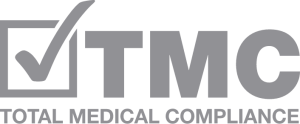The HHS Office for Civil Rights (OCR) recently settled three more investigations in the Right of Access Initiative it started in 2019. All three of the new enforcements involved dental practices, bringing the total number of access initiative enforcements to 41. The enforcements also come with a message directly to all dental practices from the OCR Director, Melanie Fontes Rainer, “These three right of access actions send an important message to dental practices of all sizes that are covered by the HIPAA Rules to ensure they are following the law.”
The purpose of these investigations is to ensure patients receive access to their records in a timely manner and at a reasonable cost. The HIPAA Privacy Rule requires practices to provide a patient, or the patient’s personal representative, access to requested records (including copies) within 30 days of receiving the request. If the practice needs an extension, it must contact the patient within the first 30 days in writing and explain the reason for the delay and give a date when the patient can expect their records.
These enforcements focus on the most common issues patients face when requesting their records and each investigation started in response to just one patient filing a complaint with the OCR. The investigations found the following issues:
Other important aspects to remember are:
These investigations and enforcements are not slowing down anytime soon and come with additional administrative time and costs to each practice to comply with the corrective action plan that comes with it. Corrective action plans from the OCR require a practice to be monitored closely by the OCR for up to 2 years and comply with any documentation and reporting requirements and deadlines related to the details of the enforcement. In addition to that, the most recent enforcements carried settlement fees between $25,000 – $80,000 to be paid to the OCR. Overall, the average amount assessed to practices for the Right of Access Initiative enforcements is nearly $60,000, with the highest being $240,000.
It’s important to have the right resources to ensure your process follows the proper guidelines. TMC clients not only have immediate access to forms and guidance in our Client Portal but they also have a personal consultant as well as easy access to expert support by contacting Client Services. If you would like to learn more about this important subject, visit our website to view Abby Mitchell’s “How Does Your Practice Respond to a Patient’s Right of Access?” webinar, that was recorded on May 5, 2022. – by Abby G. Mitchell, HCISPP, CRISC, CHPC, CHC

Total Medical Compliance
6124 Creft Circle
Indian Trail, NC 28079
Phone: (888) 862-6742
Fax: (866) 875-3809
©2023 Total Medical Compliance

Total Medical Compliance
6124 Creft Circle
Indian Trail, NC 28079
(888) 862-6742
Fax (866) 875-3809
©2022 Total Medical Compliance